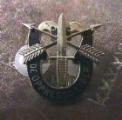A futurist advised:
"Look back twice as far as you intend to look forward": So to prepare for the next 50 years we'd be wise to look back at the past 100; for the next 100 the past 200. Most don't look into the past any deeper than the middle of the Cold War. I went to a RAND presentation of their recommendations for the future force and they stopped in the paper at the end of WWII and advised we build a force IAW what Ike faced as President in the mid-50s, at something like 3.5 % GDP. When I observed that that was a Cold War force for the threat that no longer exists, and that the emerging world looks much more like the one that existed pre-WWI than the one that existed post WWII it turns out they had run those numbers, 1.5% GDP, but apparently didn't think the customers they were courting at DoD would like them.
Lesson: Being too short sighted or ignoring inconvenient truths are both dangerous.
"Kill your own products and flee into the future" This is the advice on how Apple stays in front of technology pirates and legal rivals. They are unafraid of killing successful products and making a leap to the next thing. We too have many "successful products" such as these alliances and treaties and aircraft carriers and large standing armies, and bombers, and GCCs and rangers that now look like JSOC-lite rather than like amped up infantry, etc.
Here is our query: What must we "kill" of these dated products that served well in their time in order to "flee into the future"?
This is a scary concept, that is why there is only one Apple. Apple also always remembers their roots as they make those bold leaps forward.
We do the worst of both. We forget our roots and cling to obsolete products and concepts built for a world that no longer exists. We are no Apple when it comes to our national security.
.








 )
)
Bookmarks